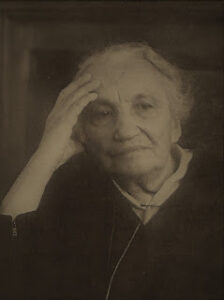Robert Johnson’s next analysis was at the age of 33, when he felt he needed to work further on his inner world, and so in 1954 he left his analytic practice in the US for 4 months to work intensively with the Jungian analyst Toni Sussman in London. The agreement was for an hour every day including Sundays which Johnson thought would be too much – but it turned out it was scarcely enough time. He also attended a Jungian training group with her one evening a week.
Toni Sussman began by saying that as he had come halfway round the world, he must mean business and her question was: ‘Whom do you love?’ Johnson says her manner was so direct and her presence so intense that he was immediately scared out of his wits and had no idea what to say. So, she asked again, ‘I am waiting. It’s really a simple question. Whom do you love?’ Johnson writes that he couldn’t think of a phony answer, and so began to pour out his heart’s sorrow,
‘… recounting all the loneliness of my life, all the failed attempts at friendship and relationship and community. I said that with Helen [fellow colleague and friend] I had a special relationship. I was literally sobbing through an unending stream of torment and sorrow. Toni listened intently, waiting for a pause in my lamentations, and when at last I stopped for breath she replied, “Well, good. Now we have something to work with.” And off we went.’
His experience with Toni Sussman was of an expert in both passivity coupled with guidance and challenge. She never overwhelmed him, but was as he describes it:
‘a master at probing into vague places in my consciousness and demanding clarity. … I could bring up any daily experience, every fear and hope, and there was no need to be tactful or on guard. I trusted her completely, an experience not often available in our power-dominated world …There was nothing I had to do to impress her or to earn her unconditional support and positive regard.’
And after the sessions Johnson would visit London churches – often lighting vigil candles or meditating in silence. Following one dream he brought, Toni Sussman thought that Johnson might follow the will of God and set up a therapeutic community based on monastic principles at Prinknash in Gloucester that would become the Catholic solution to all the ills of the world. Johnson was not a Catholic, but had always believed that analysis at its best was really a new statement of old teachings of the church. He was initially overwhelmed by the idea, but could quickly see that this was not a realistic possibility.
Johnson clearly understood the deep connection between analysis and a religious life advising that we approach our interior intelligence with a religious attitude – seriously and staying true to it. This would have been reinforced by Sussman who when visiting Jung at Kusnacht writes that she was profoundly affected by the words carved into the stone over Jung’s doorway which translated is: “Called and not called, God is present.” Many years later Toni wrote that this sentence entered the very centre of her being. She continued by saying, “I carried it – or it carried me – during all these years of my work.” She referred to the words of Br Lawrence:
“The time of business does not differ with me from the time of prayer,
and in the noise and clatter of my kitchen,
while several persons are at the same time calling for different things,
I possess God as if I were upon my knees at the blessed sacrament.”
